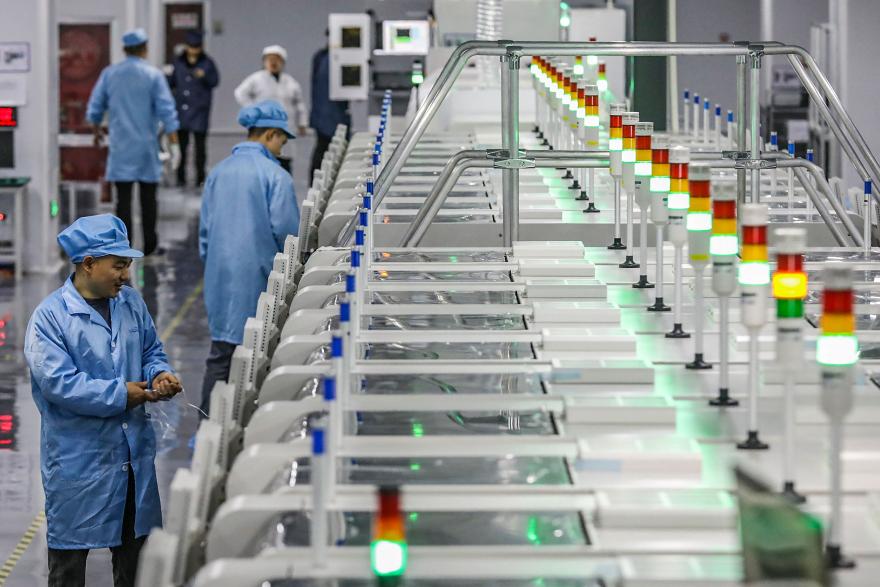CHINA’S manufacturing activity expanded in March for the first time since September, a sign that the world’s second-largest economy is stabilising.
The official manufacturing purchasing managers index (PMI) rose to 50.8 from 49.1 in February, the National Bureau of Statistics said on Sunday (Mar 31). That beat the median forecast of 50.1 by economists in a Bloomberg survey and was the best reading since March last year.
A gauge of non-manufacturing activity climbed from the previous month to 53, compared with an estimate of 51.5. A reading above 50 suggests an expansion from the previous month, while a figure below that denotes contraction.
The PMI figures are the first official data available each month to provide a snapshot of the health of the Chinese economy. The readings suggest that the country’s growth recovery has maintained traction after a solid start to the year. They may give policymakers more time to assess the impact of previous stimulus measures before taking further easing action.
The expansion in the manufacturing PMI was largely driven by the production component, which rose to 52.2 from 49.8 in February, according to Bloomberg Intelligence economist David Qu. The new orders gauge increased even more, to 53.0 from 49.0, providing clear signs of an acceleration in activity, Qu wrote in a report on Sunday.
Still, producers’ gate prices continued to fall, and at a faster pace, with the output price component dropping deeper in the contraction range, he said.
China has set a target to increase gross domestic product by about 5 per cent this year, which many economists regard as elusive, given the protracted slump in the property sector and persistent deflationary pressures.
The authorities have released more long-term liquidity into the banking system this year to spur lending, with central bank officials hinting at a potential further cut to the amount of cash banks have to keep in reserve.
They have also expedited central government spending to support infrastructure investment and pledged to provide funds to encourage consumers and businesses to replace old goods, including cars and home appliances.
Chinese President Xi Jinping acknowledged challenges the domestic economy faces in a Wednesday meeting with a group of US business leaders in Beijing but expressed confidence in overcoming them.
The sit-down with executives including Blackstone’s Stephen Schwarzman and Qualcomm’s Cristiano Amon was part of officials’ efforts to restore foreign investors’ confidence in the Asian giant as inbound investment slowed. BLOOMBERG






